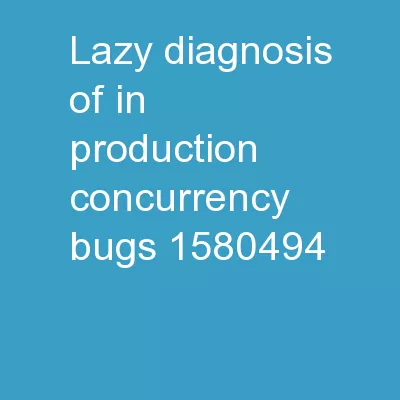PPT-Diagnosis and Beyond
Author : phoebe-click | Published Date : 2017-10-03
Presented by On At Aims of this Session What is a Diagnosis How is a Diagnosis made How will Diagnosis affect my treatment Whats it like to be Diagnosed What does
Presentation Embed Code
Download Presentation
Download Presentation The PPT/PDF document "Diagnosis and Beyond" is the property of its rightful owner. Permission is granted to download and print the materials on this website for personal, non-commercial use only, and to display it on your personal computer provided you do not modify the materials and that you retain all copyright notices contained in the materials. By downloading content from our website, you accept the terms of this agreement.
Diagnosis and Beyond: Transcript
Download Rules Of Document
"Diagnosis and Beyond"The content belongs to its owner. You may download and print it for personal use, without modification, and keep all copyright notices. By downloading, you agree to these terms.
Related Documents














